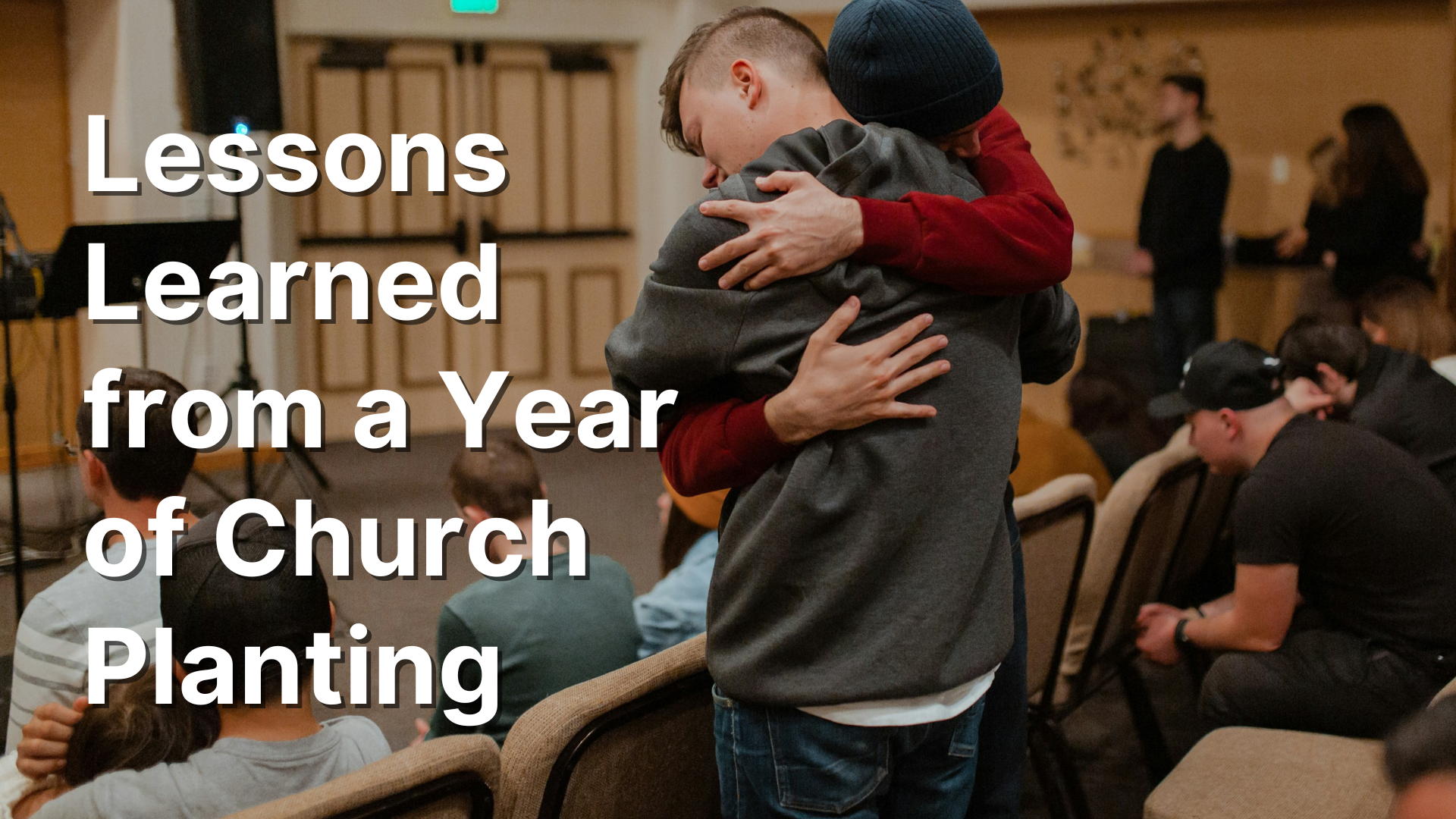4 Questions to Handle Church Complaints
Photo by Christina @ wocintechchat.com on Unsplash
The dirty little secret about ministry and leadership in general is that whatever you choose to do someone is going to hate it. They’re going to think it’s the worst decision ever and by extension you are too. It just comes with the territory.
It’s all throughout the Bible. Just do a summary read of Exodus and Numbers and see Moses’ plight. He was literally spending hours and sometimes over a month with God. His face shined so brightly he had to wear a veil. And yet, people still doubted his leadership. The Israelites revolted and tried to overthrow him at least twice. How can we hope to do any better?
My point is, there will always be complaints, but it’s what you do with them that matters. You don’t want to be like Charlie Brown and be so wishy-washy that no one respects your leadership, but at the same time you don’t want to be so stiff that you run everyone off because it’s your way or the highway.
But how do you do that? How do you find the happy medium of listening to the complaints that come our way and decide what we should act on and what we should ignore?
I’ve been in ministry for over 15 years and leadership for far longer than that. I’ve learned a thing or two about leading others and developed a few questions that help me filter through the complaints.
1. Where is the complaint coming from?
If you start with this question, you may not need to ask any further ones. We are not obligated to act, much less listen to every complaint that comes our way. In our world of social media, everyone has an opinion and many feel entitled to share it. But just because someone has an opinion doesn’t mean you have to do anything about it.
I heard one celebrity say (I can’t remember who) that if the person doesn’t have their personal cellphone number, then they’re not going to listen to whatever that person has to say. Yes, they have an opinion, but you don’t have to give them access to your life or your choices.
I post preaching Reels regularly on social media and I get complaints from all sides. Atheists call me an idiot and Christians call me a weirdo. One guy the other day called me a swine in Latin because I used the name Jesus instead of Yeshua. He took real offense at the use of the letter J. Most of the time, I just delete their comments and move on. They don’t get a place in my head or my comment thread.
That said, sometimes the complaints come from people you do know. If that’s the case, there are a few more filtering questions you can ask.
2. How well do they know you or your ministry?
There is a group of people that are never happy. They jump from church to church whenever they get miffed, leaving a trail of anger and destruction.
Then they show up at your church. A lot of times they’ll ask for more access than they’ve earned. They’ll want a personal private meeting outside of ministry times. They’ll want your personal cell phone number, or they’ll want to start serving even though they’ve only been at your church for a week. They come with a big resume and talk a big game, but soon you realize they’re a wolf in sheep’s clothing.
They start asking questions and expressing opinions. If you don’t bend to their will, they’ll just get louder and gather support from others. Sometimes their demands become unreasonable. I read a post recently where a mom wanted the children’s pastor to get rid of all her snacks just to accommodate her child’s special diet. I get that some kids have special dietary needs, but that doesn’t warrant an entire overhaul of your snack strategy. Accommodations can be made.
If you give in, like a child who always gets their way, they have more ammunition and will continue to push. Eventually, they’ll get so angry, they’ll leave with a trail of hurt feelings and broken systems in their wake.
So, here’s what you should do.
First, listen to their complaints. They may be valid. New people don’t have the same blind spots you do, and they’ve noticed something you’ve missed or long forgotten. Look into their complaint and possible solutions. If they’re valid and doable make the adjustment and thank them for their contribution.
However, if their complaint isn’t valid, is against your mission and vision, or generally not possible, then thank them for their suggestion, explain to them that you’ve looked into it and have decided not to move forward. Most of the time, if a person feels heard, they’ll be happy to fall in line, no harm, foul. If they continue to push, you’re going to have to make a decision. What’s more important, your strategy or this person? Which leads me to my next question.
3. Can you build your church on this person?
Everyone is important. We’re all made in the image of God and are special to him. At the same time, not every church is for everyone.
I like what Mike Todd does at his church. When someone complains about the way they do service, he gives them a card that says “not your cup o’ tea.” On the back, it has a list of other churches in the area they can attend.
Jesus is for everyone, but your church isn’t. God has ordained the leadership of your church to reach the people you’re reaching. Go ahead and try to reach as many people as possible. But don’t be surprised when people only come once and never return. It wasn’t for them. And that’s ok.
If the person who makes a complaint is the kind of person that you’re trying to reach, a long-standing member of the church, or a trusted volunteer, then you should give that complaint more weight. Dig a little deeper into their idea and try to find solutions. They’ve been with you a long time and will most likely be with you for a long time still. Make sure they are heard and work with them through the solutions. That’s honoring of the relationship.
When I started at my second church, the pastor was in the middle of launching a second service. Because of our schedule, I had to shut down Sunday School and start small groups. I sat down with each of the teachers and laid out the plan and what part I’d like them to play in the future. Many of them made the jump, but the Sunday School Director didn’t. She disagreed with the strategy and announced she’d be taking a step back from kidmin.
I listened to her concerns and thanked her for her service. We even threw a retirement party for her 20 years of service. She stayed at the church for years after and continued to support through giving.
4. Is this person a serial complainer?
There are just some people who are perpetual curmudgeons. It doesn’t matter what you do, they’re going to have something negative to say about it. A lot of times these people have been at the church for a long time and may have even complained their way into leadership positions.
The hard part is that sometimes, they’re right, so you can’t dismiss them out of hand. However, once you know they’re complainers, don’t let them get you down. Listen to their criticism, thank them for their opinion and move on. They’re just going to bog you down.
A great way to shut down complainers is to ask them for a solution. Every time they come to you with a criticism or complaint, ask them what they would like to see happen in the future. Their solution needs to be more than “not this.” It needs to be workable.
Another strategy I’ve used is to offer for them to head up the solution. If they truly believe in what they’re saying they’ll jump right in. However, if they balk, it may not be something they really wanted. It’s just the complaint of the week.
You’ll never make everyone happy. As people-pleasing pastors, that’s a tough pill to swallow. We want everyone to love us and our church as much as we do. But that’s not possible. Instead, we can use these questions to decide who to listen to and who to ignore. It’s not easy and there can be some hurt feelings on both sides. But it’s the price of leadership and what we signed up for whether we knew it or not.










I was early in my career as a kids pastor. I was doing the best I could to teach my kids about Jesus, lead my volunteers, and help the church grow. It was a big job for a 25-year-old, but I knew God had called me to this. We were making progress.
Except for one volunteer.